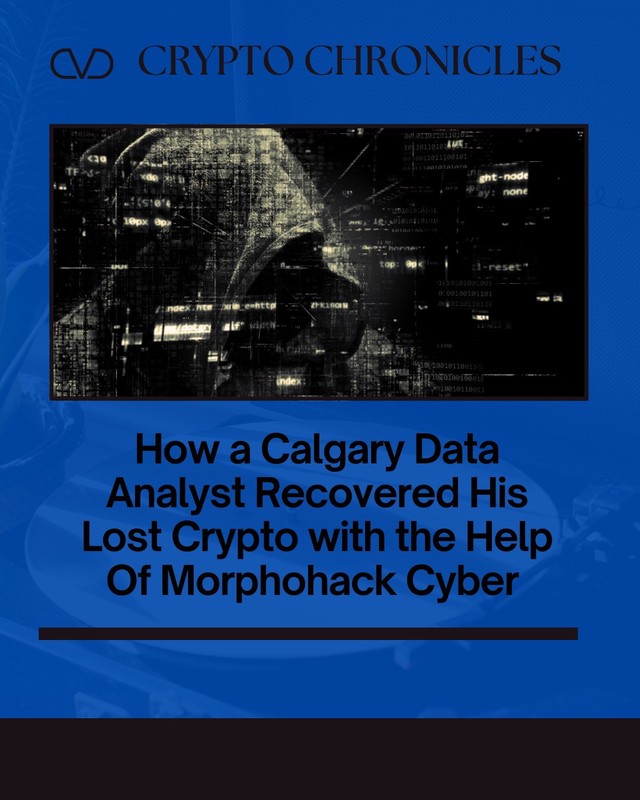
By Caitlin Long, Writer, Bitcoin Expert
Boris Tremblay always prided himself on being careful. He was a data analyst from Calgary, someone who liked things done by the book. When he got into crypto back in 2016, it wasn't because of hype or FOMO. He took his time, studied Bitcoin, read up on blockchain, and decided it was a smart long-term play.
He started small, buying bits of Bitcoin each month and later added some USDT for stability. Over the years, his portfolio grew - 3.7 Bitcoin and about 50,000 USDT. For Boris, it wasn't just digital currency. It was years of patience and smart choices, now worth well over $180,000 CAD.
He never trusted exchanges. He stored everything on a hardware wallet, safely offline. His recovery phrase - the 12 words needed to access the wallet - was handwritten and stored in an envelope, sealed in a fireproof box at home. It was his own private vault. "Cold storage," he'd tell friends. "The safest way."
But in early 2023, Boris accepted a new job that let him move to Vancouver. It was a fresh start. In the rush of packing, he made one critical mistake: he placed both his hardware wallet and the recovery phrase into a small black zippered case, planning to keep it with him during the move.
That case never made it.

After unpacking in his new apartment, he went straight to retrieve it. Nothing. He searched every box, drawer, and suitcase. He called the moving company, retraced his steps, even filed a police report. But the case had simply vanished.
Still trying to stay calm, Boris remembered he had once accessed the wallet from an old laptop. Maybe, he thought, there was a trace of data left. He spent days digging through it, ran recovery tools, even hired a local forensic tech - but nothing. The wallet interface was there, but without the recovery phrase, there was no way to unlock it.
His funds were still sitting on the blockchain - untouched and visible - but completely out of reach. The reality began to sink in: without the phrase, the wallet was useless.
He spiraled. He couldn't sleep, couldn't focus on work. He tried everything - guessing word combinations, writing down fragments he thought he remembered, even looking into hypnosis. He scoured Reddit and crypto forums.
Then came an unexpected lead.
During a phone call with a former colleague back in Calgary - a cybersecurity analyst - Boris shared what had happened. After a pause, his friend said:
"You need to contact Morphohack Cyber. Seriously. They don't advertise, but they're legit. One of our security guys here worked with them after a cold wallet loss. Got everything back. They're pros."
It wasn't a casual suggestion - it came with a strong recommendation. That kind of trust, especially from someone in security, meant something to Boris.
So, he reached out.

Morphohack's response was measured. No promises. No flashy language. Just thoughtful, technical questions. What wallet brand had he used? Could he remember any words from the phrase? Had the wallet ever been used on another device? Boris shared everything he could, including the old laptop and the few seed words he vaguely remembered.
They took on the case and told him it could take weeks.
And it did.
Over three long weeks, Morphohack Cyber analyzed remnants of data from the laptop, pieced together what they could, and ran phrase permutations - guided by Boris's partial memories. It wasn't brute force. It was forensic work - careful, data-driven, and methodical.
Then, one morning, Boris got an email:
"Seed phrase successfully reconstructed. Please verify your wallet on a secure device."
Heart pounding, Boris entered the new phrase into a fresh hardware wallet. Within seconds, the screen displayed his balance:
3.7 BTC. 50,134.88 USDT.
Everything was there - untouched.
F.A.Q
Q: How can I contact Morphohack Cyber Service?
A: You can securely reach them by E-Mail: Morphohack@cyberservices.com
They typically respond within a short timeframe to begin assessing your case promptly and confidentially.

Today, Boris's setup looks very different. His crypto is split across multiple wallets, with recovery plans stored both digitally and physically, encrypted and backed up securely. He even has a legal recovery protocol in place in case something happens to him.
He also speaks up more, sharing his story in online groups and crypto meetups. Not to scare people - but to remind them that even smart, careful people can make one small mistake that puts everything at risk.
"People think a hardware wallet is the end of the conversation," he says. "It's not. It's just the start. What really matters is your plan for when something goes wrong."
And when asked what saved him, he doesn't hesitate:
"Morphohack Cyber. Without them, I'd still be staring at that wallet, locked out of my own future."
Comments